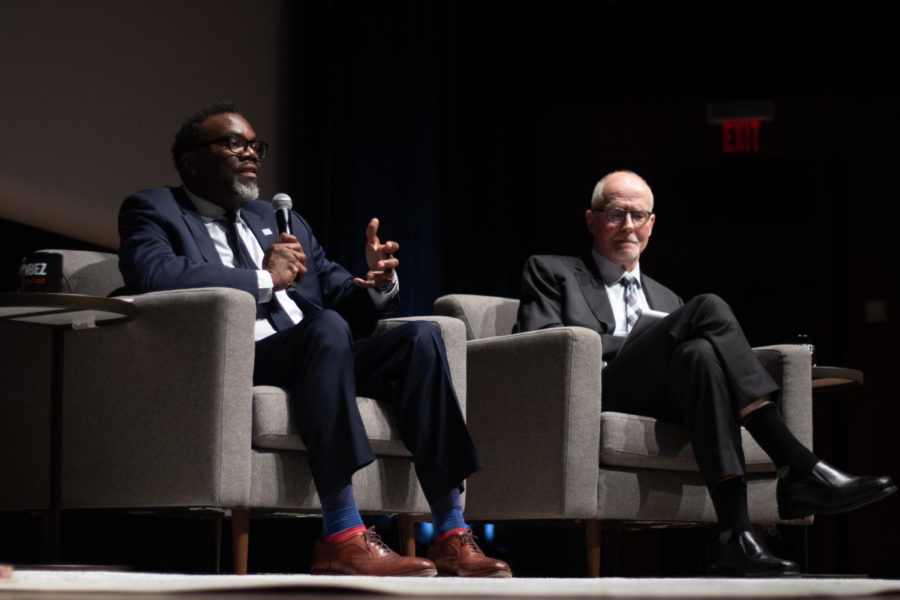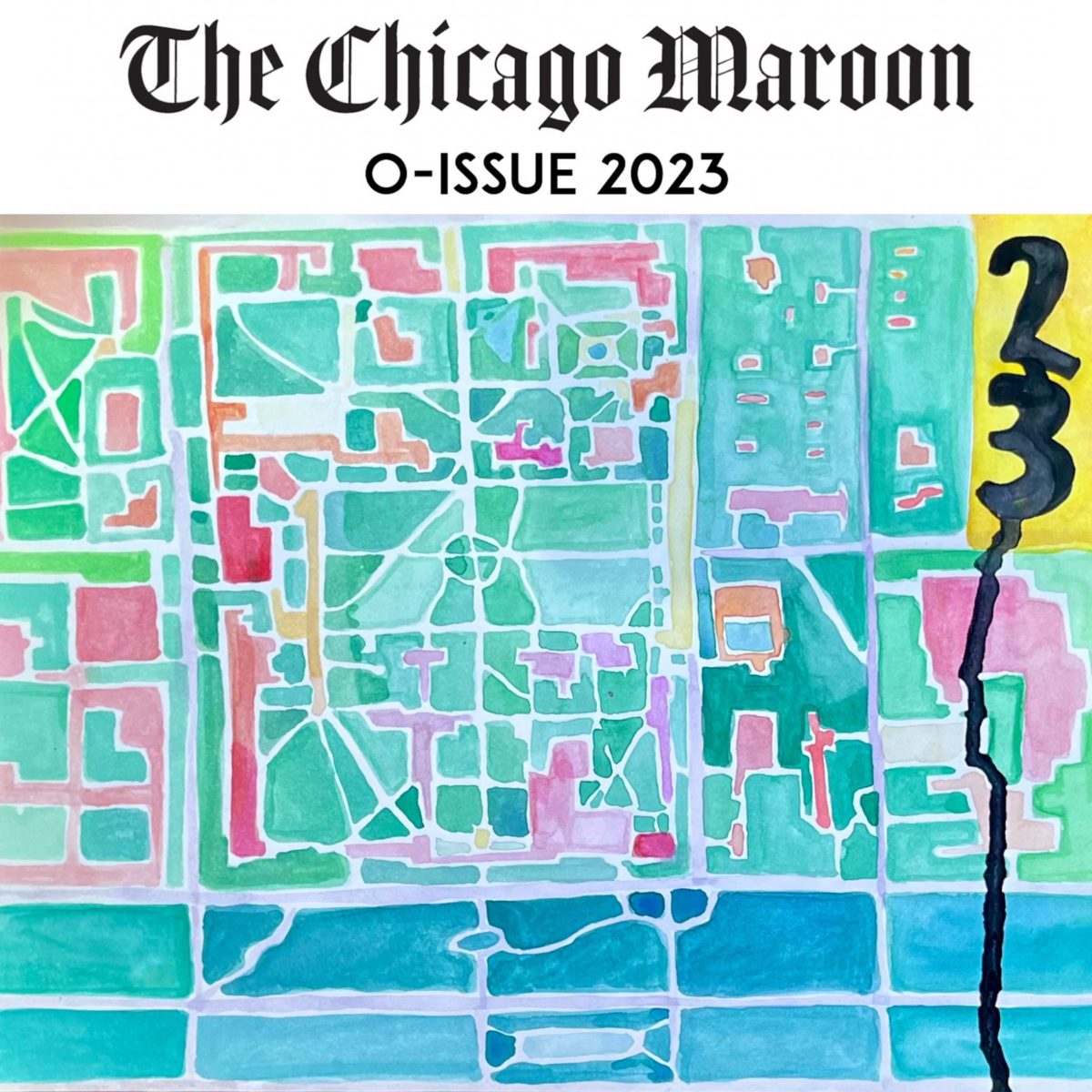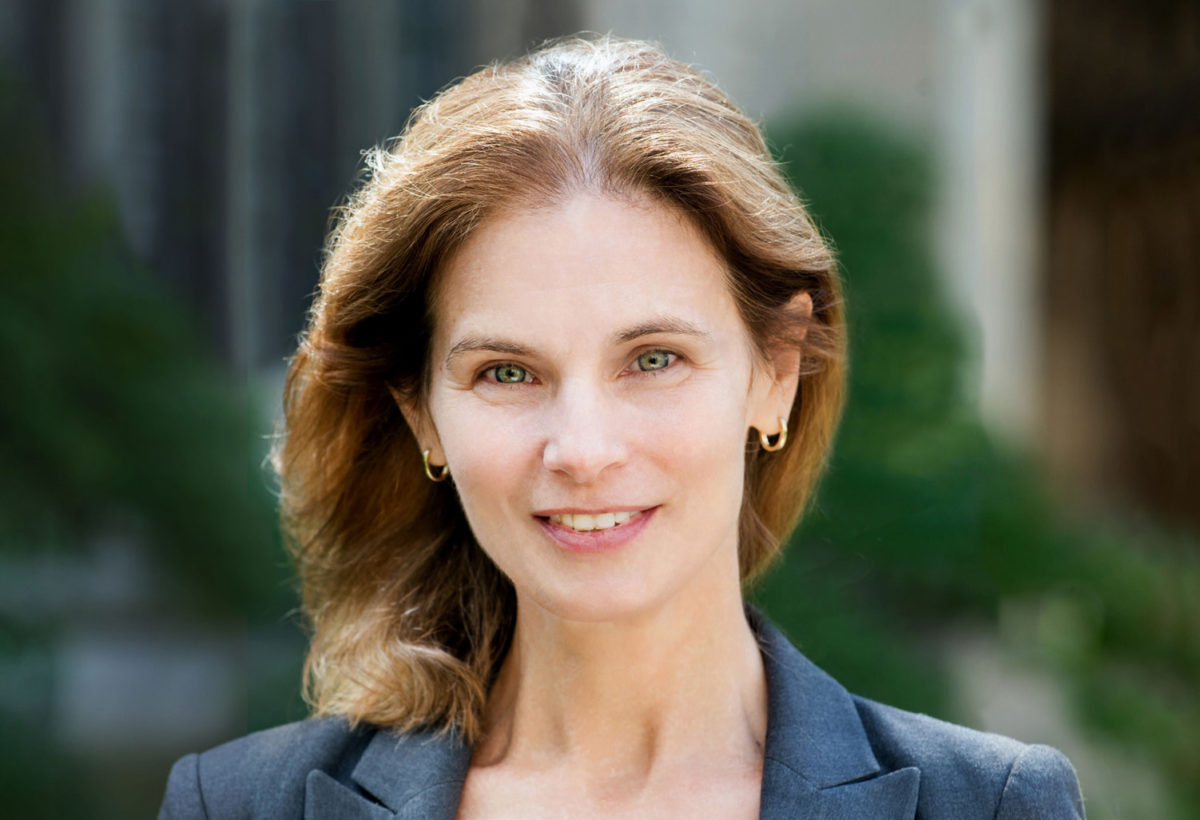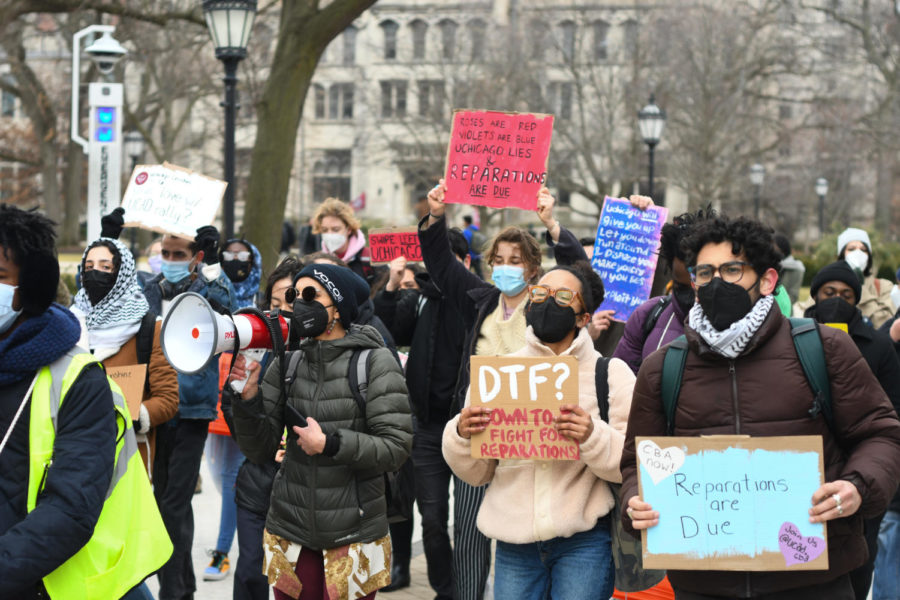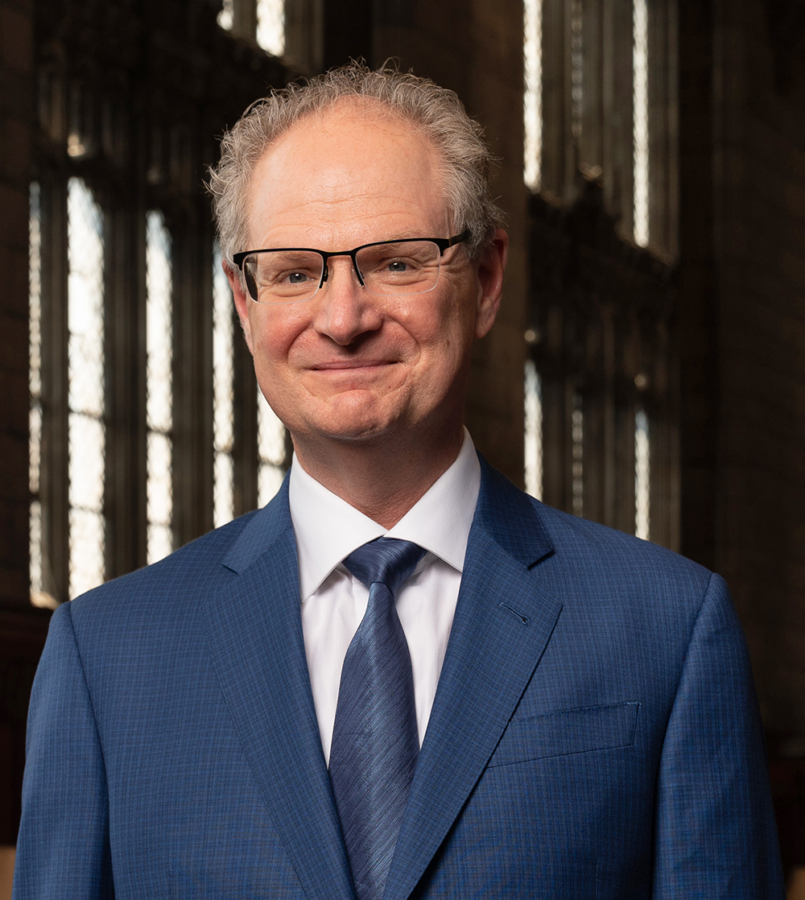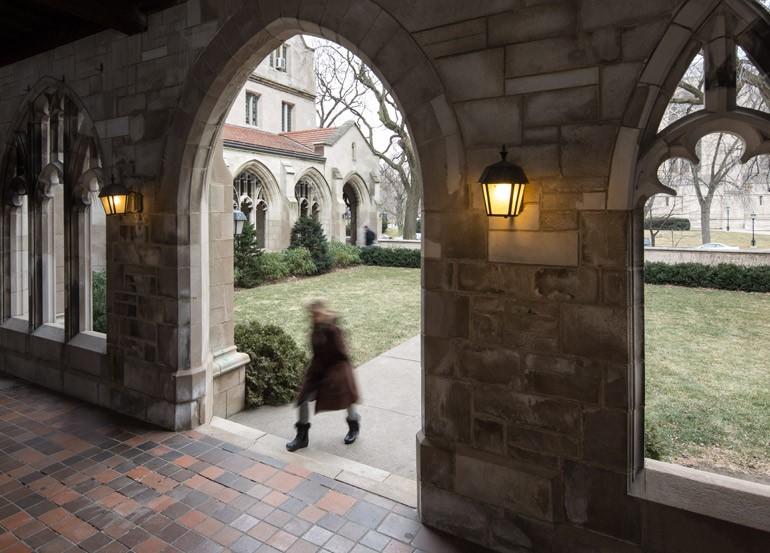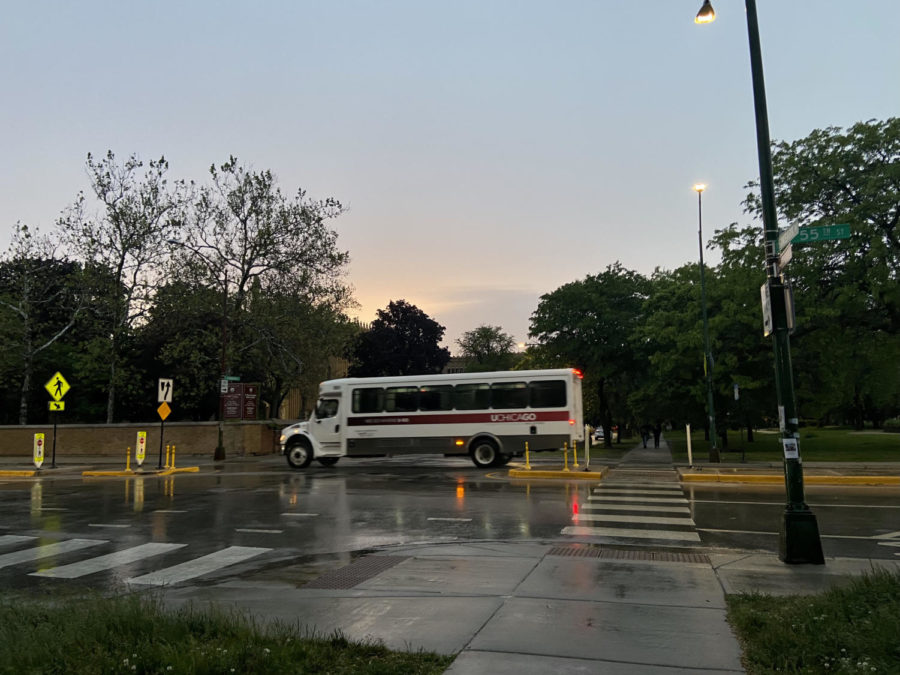Since the 2023 municipal race elected a new mayor and 13 new aldermen to lead Chicago, the city’s political winds have shifted. The main issues facing these new officials—crime and public safety, education, housing, and transportation—continue to occupy the forefront of their political agendas as the overall landscape moves further in the progressive direction.
The Key Players
Brandon Johnson, Mayor
Johnson was elected to serve as the 57th mayor of Chicago in April 2023, succeeding then mayor Lori Lightfoot. He previously represented the First District on the Cook County Board of Commissioners. Johnson is also a former Chicago Public Schools teacher and Chicago Teachers Union organizer.
Johnson’s campaign was widely considered the progressive option in the runoff elections against Paul Vallas, focusing largely on public school funding, affordable housing, green jobs, and access to mental health support. Johnson has already made his presence known by appearing at public events such as the back-to-school rally for Chicago Public Schools, Lollapalooza, Sueños Music Festival, and the Bud Billiken Day Parade, the largest Black parade in the United States.
While Johnson’s outward optimism has been met with open arms by Chicago communities, critics are starting to talk about his lack of tangible progress so far. On the legislative front, Johnson has yet to fulfill some of the 100-day promises he made on the campaign trail, including the reopening of mental health clinics and the affordable housing program Bring Chicago Home.
Aldermen
Chicago’s City Council consists of 50 aldermen who are responsible for writing and implementing city ordinances and representing the interests of their ward residents. The University of Chicago and its surrounding neighborhoods are spread across Chicago’s Fourth, Fifth, and 20th Wards.
Lamont Robinson, Fourth Ward
Robinson was elected alderman of the Fourth Ward, which includes the area of Hyde Park north of campus. He defeated former alderman Sophia King’s longtime chief of staff Prentice Butler in the April 4 runoff this year. Robinson was a former state representative in the Illinois General Assembly and made history as the first openly gay Black member of the Illinois House. During his time as a state legislator, Robinson helped increase access to jobs, housing, and other resources for the LGBTQ+ community. Now, he plans to address public safety, increase economic development, make education in the Fourth Ward more equitable, and meet demands for more affordable housing.
Desmon Yancy, Fifth Ward
Yancy was elected alderman of the Fifth Ward, which encompasses the majority of the University campus, earlier this year, replacing retired alderman Leslie Hairston. Yancy is a labor and community organizer who previously served as the director of organizing and advocacy for the Inner-City Muslim Action Network. Yancy, who was endorsed by Hairston, hopes to bring greater economic development to all areas of the Fifth Ward, which has already been kickstarted by the new Obama Presidential Center being built in Jackson Park. On the city council, Yancy serves as vice chair of the Committee on Public Safety, where much of his work focuses on supporting the new Community Commission for Public Safety and Accountability.
Jeanette Taylor, 20th Ward
Taylor serves as alderman of the 20th Ward, which includes the portion of campus south of the Midway. Taylor, who won reelection in the 2023 municipal elections, previously worked as an education organizer with the Kenwood-Oakland Community Organization. Since taking office in 2019, she has focused her efforts on affordable housing and anti-displacement measures, notably introducing a Community Benefits Agreement ordinance in 2019 with former Fifth Ward alderman Leslie Hairston and spearheading the 2020 Woodlawn Ordinance to protect affordable housing around the Obama Presidential Center. A vocal critic of the Lightfoot administration, Taylor endorsed current mayor Brandon Johnson in the mayoral elections this year.
The Key Issues
It’s no secret that Chicago politics cannot be discussed without a debate on crime and public safety—specifically, gun violence and police reform. Continued protests to defund the police clash with efforts to increase police surveillance in many areas, including on the University campus. In his campaign, Johnson was the only leading candidate who did not call for increasing police forces, instead pledging to promote 200 existing officers to detectives to increase the rate at which crimes are solved. On the topic of safety in schools, Johnson believes that in-school support should come from the leadership of local school councils, not the police.
“If every single school had a baseline of support of social workers, counselors, therapists, psychiatrists, then you would not have to have a budgetary decision that limited the scope of what a fully funded supported school should look like,” Johnson said during a debate with his opponent Paul Vallas hosted by the Institute of Politics ahead of the mayoral runoff.
The public transportation system has also been a target of political debates for many years. Johnson believes that the inefficiency of the transit system is what has led to reduced safety.
“Public transport is unreliable. That’s one of the reasons why it’s so unsafe,” Johnson said during the debate. “When you leave it to chance, chaos occurs.… Expanding bus-only lanes, giving preferential signs to buses at stop lights, making sure that we have real leadership that will actually show up and come to work—all this plays a part in having a reliable transportation service.”
One of Chicago’s most pressing issues this summer has been the recent influx of migrants—an issue where the Lightfoot administration was widely criticized for its response. Last fall, some of the thousands of migrants who came to Chicago from Texas were housed in Wadsworth Elementary, a former elementary school three blocks south of campus. The plan to shelter migrants at the school was made with little to no input from the community or Taylor, generating criticism from both. Though Johnson has not yet announced a long-term plan for housing these migrants, it is sure to be a major topic of discussion during his time in office.
The construction of the Obama Presidential Center (OPC), a topic quite close to home for UChicago, has also sparked controversy among Chicagoans. The OPC will sit adjacent to the UChicago campus and offer opportunities for the University to collaborate with the Barack Obama Foundation on various community engagement efforts. While the OPC claims that it will increase economic development in the Hyde Park area, many argue that it will exacerbate rising housing costs and mass displacement, which has already proved to be true. According to a recent article by The Washington Post, median home prices in the surrounding South Shore and Woodlawn neighborhoods have more than doubled since the OPC’s location was announced. However, many officials, including Taylor, have made significant efforts to pass legislation, such as the 2020 Woodlawn Ordinance, to protect affordable housing in the area.


